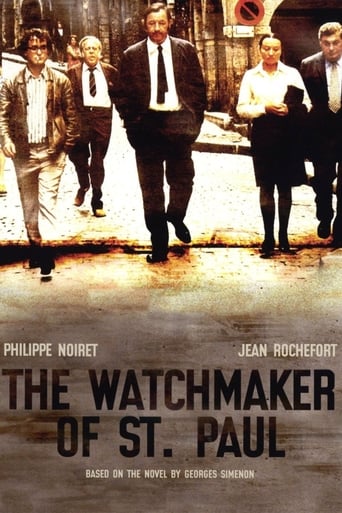

Over the course of several weeks, Michel is visited by journalists and tabloid writers hoping to get some kind of juicy story out of him, but he has almost nothing to offer beyond his bewilderment.

They are more like roommates and acquaintances than father and son and Michel confesses that he really has no idea who his son is. Guilboud asks for his help in any way that he can, but the fact is that Michel and his son have not been on very intimate terms for many years. Michel takes the news in stunned silence and assumes that it must all be a mistake, but indeed it’s true: Michel’s son is a murderer. Without communicating to him what is going on, they take him to their commissioner Guilboud (Jean Rochefort) who calmly and plainly tells Michel that his son – a young man who lives with him – has killed a man and gone on the lam with his girlfriend. Humble and quiet widower and clockmaker Michel (Phillippe Noiret) opens up his shop one morning and is brusquely greeted by police detectives who advise him to quickly close his shop and get in their car.

The performances – especially by Noiret – are uniformly excellent, and the film’s director Bertrand Tavernier delivers a mature and thoughtful piece about humanity and the gentle assurance that even in tragedy, there is hope.Ī father is stunned when police tell him that his son has killed a man and is now on the run with his girlfriend, and he spends the next few weeks trying to understand how he no longer knows who his own son is.


 0 kommentar(er)
0 kommentar(er)
